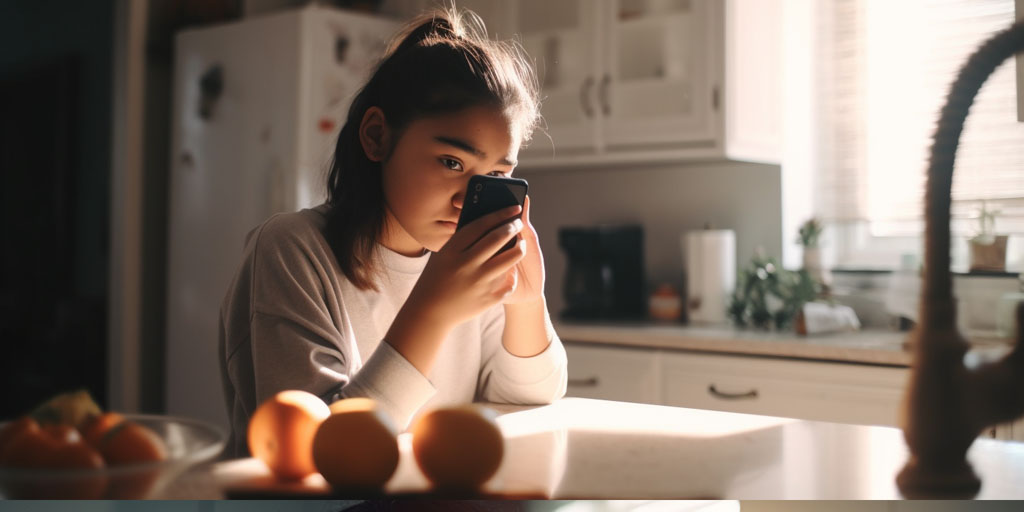
A recent study by Canadian researchers tested whether using less social media could make teens and young adults feel better about their bodies.
About 22% of children and adolescents struggle with disordered eating, which can lead to serious mental and physical issues. One of the predictors of developing an eating disorder is poor self-esteem and low body image.
But can cutting back on social media improve kids’ self-esteem? Here’s what the study found.
In 2021, researchers recruited 220 participants for a randomized controlled trial. The participants were 17-to-24-year-old undergraduate Canadians (76% female, 23% male) struggling with depression or anxiety. Half of them were told to use social media for just one hour a day for three weeks. If they used it for more than an hour, they got a reminder email. The other half were allowed to use social media as much as they wanted.
The participants submitted screenshots of their smartphones’ daily screen time reports. Social media platforms tracked in this study included Facebook, Instagram, TikTok, Snapchat, Twitter, Pinterest, and Tumblr. Not included were video streaming services — like YouTube or Netflix — or messaging platforms like WhatsApp or Facebook Messenger.
Participants were asked questions about their weight and body image before and after the three-week period.

While not everyone stuck to the one-hour limit, on average, the people in the restricted group cut their social media time by half. They used social media for only 78 minutes per day, while participants in the unrestricted group used social media for 188 minutes per day.
After three weeks of using less social media, young people of both genders felt better about their bodies and reported higher levels of self-esteem and body image. There was no change to these metrics in the unrestricted group.
Most studies measuring the impact of social media are only correlational — i.e. they tell us if there’s an association between social media use and negative effects, but they don’t tell us if social media causes the negative effects.
Because of the way this study was conducted, it shows social media use has a direct negative impact on body image. And, most importantly, it shows us that using less social media can actually help improve body image and self-esteem.
It only lasted three weeks, so we don't know if these improvements would last longer. The study only tracked social media use on phones, not other devices. And it only looked at people who were feeling anxious or depressed, so we don't know if the results would be the same for everyone.
This study suggests that parents should encourage teenagers to limit their social media use to about an hour a day in order to support a healthy body image and self-esteem. In addition, videos featuring disordered eating are rampant on platforms like YouTube, TikTok, and Instagram; educate yourself about this type of content and discuss the topic with your kids.
A growing body of experts recommend monitoring your child's online activity, so you can talk to them about concerning content as soon as it crops up. BrightCanary gives you visibility into your child's social feeds and messages, Google and YouTube searches, and texts. To help your kids develop healthy digital habits, it's important to have open conversations with them about the potential impact of social media use on mental health.